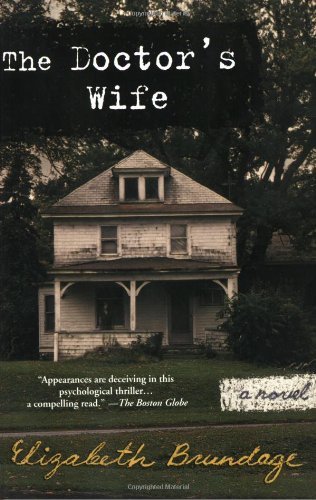
The Wife
Book Description
Behind every successful man lies a woman who has sacrificed her own ambitions. Joan Castleman knows this truth all too well. As her husband, a celebrated author, prepares for a prestigious award, Joan wrestles with years of unspoken resentment and dreams long abandoned. Tension crackles beneath their polished façade as secrets simmer, poised to shatter their seemingly perfect life. Each moment inches closer to revelation, pushing Joan to confront her own worth. Will she continue to play the dutiful wife, or is it time for her to reclaim the narrative of her own life? How much longer can she remain in the shadows?
Quick Book Summary
"The Wife" by Meg Wolitzer is a searing exploration of marriage, ambition, and female selfhood. The novel centers on Joan Castleman, the devoted wife of Nobel Prize-winning author Joe Castleman. As they travel to Helsinki for the award ceremony, Joan reflects on the sacrifices she has made for Joe’s celebrated career, questioning the authenticity of their partnership. Over the decades, Joan has subsumed her own ambitions and literary talent to support Joe, enduring his infidelities and self-absorption. The narrative moves between past and present, gradually unveiling the deep secrets and compromises that have defined their marriage. Confronted with the culmination of Joe's success, Joan must decide whether to continue living in his shadow or finally assert her own identity. Wolitzer delivers a biting commentary on gender roles and the cost of creative collaboration, ultimately empowering Joan to reclaim her agency in a world that undervalues women’s voices.
Summary of Key Ideas
Table of Contents
Sacrifice and Female Ambition
The story follows Joan and Joe Castleman as they travel to Helsinki, where Joe is set to receive a prestigious literary award. The journey triggers a flood of memories in Joan, bringing into sharp focus the unacknowledged work and emotional labor she has invested in Joe's success. Across decades, Joan has been the ever-supportive partner, sacrificing her own literary aspirations to bolster Joe’s career while coping with his habitual infidelities and self-absorption. This trip becomes a crucible, forcing Joan to reassess her choices and personal value when juxtaposed with her husband’s anticipated accolade.
The Complexity of Marriage and Collaboration
Joan’s backstory is interwoven throughout, revealing her own remarkable talent and her early ambitions as a writer. Early in their marriage, Joan chooses to suppress her own voice due to the patriarchal realities of the literary world, believing that her work would never earn recognition. Instead, she channels her creativity into Joe's novels, essentially becoming the silent architect of his celebrated career. Her sacrifice is compounded by the loneliness and frustration of inhabiting a secondary role, all while society venerates Joe's supposedly individual genius.
Power Dynamics and Gender Roles
As Joe’s success culminates with the Nobel Prize, the power imbalance in their relationship becomes starkly apparent. The narrative scrutinizes not only the expectations placed on wives of prominent men but also the ways women’s labor and talent are appropriated or erased. Through Joan’s internal monologue, the novel challenges readers to consider the institutional forces that reinforce gender inequality, especially in fields such as literature where genius is often coded as male.
Secrets, Resentment, and Self-Discovery
Years of resentment and secrecy reach a breaking point during the Helsinki trip. Joan’s simmering dissatisfaction—fueled by Joe's ongoing affairs and her own artistic suppression—pushes her to confront the truth about her marriage and the public narrative of Joe’s career. Under increasing emotional strain, Joan contemplates breaking free, wrestling with the risk and liberation inherent in revealing her pivotal role in Joe’s success.
Consequences of Living in the Shadow
Ultimately, "The Wife" is a sharp indictment of the cultural myths surrounding marriage, talent, and sacrifice. Joan's journey evolves into one of painful self-realization and empowerment, prompting readers to re-examine both the costs of living in another’s shadow and the potential for reclaiming one’s story. Wolitzer’s novel offers a compelling portrait of a woman’s inner life, the corrosive effects of compromise, and the courage it takes to step into the light after years spent in darkness.
Download This Summary
Get a free PDF of this summary instantly — no email required.





